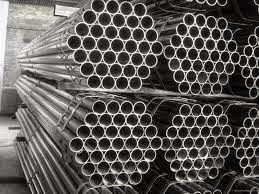Steel sheet is a thin metal sheet of stainless steel up to 6mm thick. While sheets of stainless steel that are thicker than 6mm also exist in the market, they are usually called as stainless steel plate. To avoid confusion, a distinction needs to be observed between sheet metal and plate metal. Steel sheet, unlike the plate metal, has a high surface area to volume ratio. Apart from thickness and physical properties, sheet and plate metals have different applications.
Plate metal is generally used in large structures
like ships, bridges, turbines, skyscrapers etc. Sheet metal is instead used in
our day to day life objects and machines like cars, trains, planes, computers,
home appliances, farm equipment, office furniture, machine components and even
soda cans. The manufacturing processes for both the type of metals are also
different. Forming a sheet of steel metal involves a lot of processes
that manufacture parts for a vast amount of purposes. The stock used for steel
sheet metal processes is usually formed by rolling and comes in coils. Some of
these processes may be applied to plate metal as well however plate, because of
it’s thickness, has its own set of problems in processing. Therefore, some of
the sheet metal functions and operations do not apply to plate metal.
Let’s discuss the manufacturing processes of sheet metal a little
more in detail. Though Steel Sheet Suppliers may not involve directly into any of these steps, an
understanding of what goes into behind making of the sheet metal helps them
market their business better. Sheet metal is manufactured mostly on a press and
parts are formed between two die. The upper die is called as a punch. Sheet
metal parts, referenced to as stampings sometimes, are usually economical and
easy to produce in large numbers. Sheet metal is formed cold. Usually for sheet
metal applications there is no change, or hardly any negligible change in the
sheet thickness. For certain processes which include deep drawing, there is a
small or expected change in thickness, but in most cases this may be also
neglected. Sheet metal produces parts that typically have high strength, good
surface and accurate tolerances.
Stainless steel sheet is available in a variety of grades, sizes,
types and finishes. Some of them are also available in H sections or H piles,
for providing a deep foundation of structures. The process of manufacturing
such H sections is also called as H Piling.



No comments:
Post a Comment